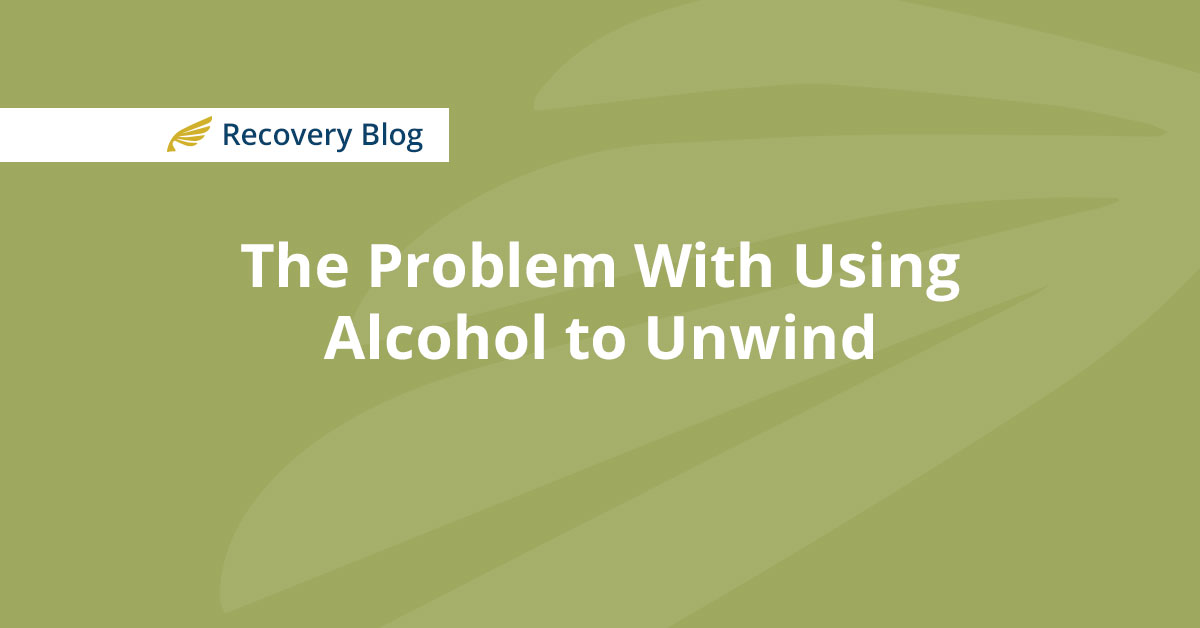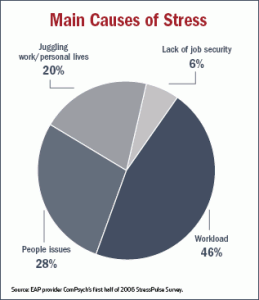The Power of Setting Smart Goals for Addiction Recovery
Setting goals is necessary in all aspects of life and substance use recovery is no different. Goals...

Do you know what this day needs? Wine! Sound familiar? If so, you are not alone. Drinking to relieve stress is something many Americans do at the end of the day, or week, or even every weekday. But does having a drink help with stress management?
According to the American Institute of Stress (AIS), job stress is the major source of stress for American adults, and it has escalated progressively over the past few decades.
Job stress is associated with high demands at work. Stress can also be caused by the perception of having little control at work. High levels of job stress are associated with increased rates of:

Many people think that a quick drink at Happy Hour, a glass of wine at dinner, or a nightcap can help relieve stress. Unfortunately, nothing could be further from the truth. While alcohol may temporarily relieve some job-related stress, in the long-term it can cause big problems for your mental health.
Long-term alcohol use is linked to a range of issues including:
Our brains are like well-programmed machines. However, to perform optimally, the brain requires a delicate balance of fine-tuned chemical reactions. Using alcohol is not the best long-term plan for stress relief.
Alcohol is a depressant that disrupts the balance of chemicals necessary for optimal brain function. As a result, alcohol use can negatively impact feelings and actions and permanently alter long-term mental and physical health over time.
The relaxed feeling you experience when you have that first drink is due to the chemical changes in your brain caused by alcohol. Neurotransmitters are chemicals that transmit signals between nerve cells (or neurons) in the brain. Continual drinking affects this signal transmission in the brain. When high levels of alcohol are ingested, a negative emotional response may occur. And when tolerance increases over time, your body requires more alcohol to achieve the same intoxicating effect.
Long-term alcohol consumption can lead to depression and anxiety, which can make coping with stress more difficult in the long run. When we drink, our perception of a situation may be altered, leading to misinterpreted cues and inappropriate responses. You may think a colleague is out to get you or that you’re about to get fired, but in reality, that may not be the case at all. Alcohol alters the perception and the interpretation of situations, making it more difficult to handle the inevitable stressors of life.
Many people with anxiety issues reach for a drink in certain social situations because alcohol lowers inhibition. But decreasing your inhibitions is not without risks. For instance, inebriated people may say negative things about their boss and colleagues or reveal confidential information when they are socializing. Such reckless behavior can have consequences that are far-reaching and irreparable.
We understand the challenges of managing daily stress. If you or someone you know are experiencing alcohol problems, contact us for help.
Setting goals is necessary in all aspects of life and substance use recovery is no different. Goals...
Making the decision to move on from a recovery home is not one to be taken lightly, and certainly...
Relapses and slips are part of recovery, and not necessarily a sign that what you’re trying to do...